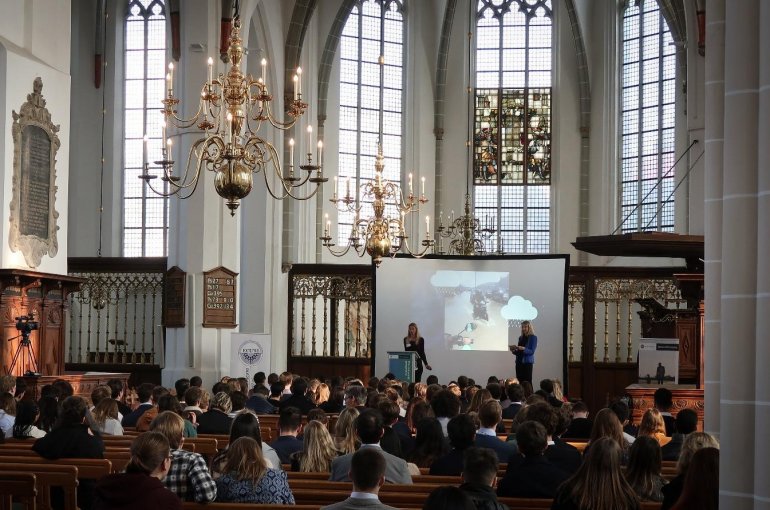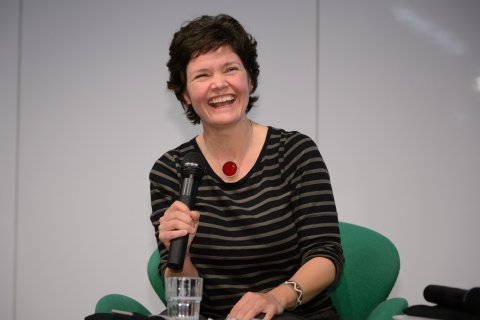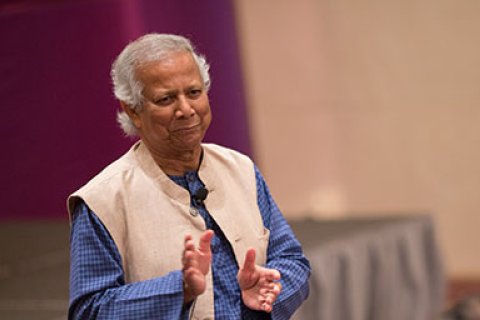Social Entrepreneurship: Rethinking the Future of Business

At the Economic Conference Utrecht, Milande Busquet and Margot Leger gave their take on innovation and entrepreneurship in The Netherlands. As PhD students in Social Entrepreneurship, they wanted to add another dimension to it: “the social” aspect. They want to rethink the future of business by introducing social value creation as a core aspect of business. This is a written account of their findings, in the form of a personal blog:
"Our modern world is facing challenges, inequalities and weather patterns that are unprecedented. Our current pattern of consumption is not sustainable. If we keep going the way we are going, we may run into a lot of trouble soon. In 2015, the United Nations and its member states created the Sustainable Development Goals, otherwise known as the SDGs. These are seventeen goals aiming towards ending poverty, protecting the planet and ensuring prosperity for all. These goals are an operationalisation of the social needs and planetary issues that humanity must address, basically the world’s to-do-list for the next twelve years."
Where society faces a challenge, there is a market gap for innovation
"When you look at the goals you see that not only the public sector is called upon for action but the private sector as well. As innovators and entrepreneurs, we need to rise to the challenge. As we’ve learnt in entrepreneurship studies, where society faces a challenge, there is a market gap for innovation and entrepreneurship to step in and create a solution."
"In the beautiful Jacobikerk in Utrecht, we took a poll during our presentation to determine the social entrepreneurial spirit of the crowd. The audience was mainly made up of students, and over two third of them wanted to contribute to make the world a better place. Almost half of all respondents looked at the challenges they saw in the world and wanted to solve them. A quarter were ready to escape Earth and go and see what SpaceX and Mars had in store for them. While it was just a fun poll at a conference, and not controlled scientific research, it was very reassuring to see a good portion of the audience leaning towards taking action."
"Using our toolkit of social entrepreneurship, we wanted to show the students, academics and business professionals in the audience, why it is so important to move beyond business that solely had a profit motive. We’d like to highlight some of these ideas in this blog."

New ways of economic thinking
"Academics are beginning to rethink consumption and production as we know it. Economist Kate Raworth is illustrating a new way of economic thinking on more of a macroeconomic level. Raworth claims that we need to make fundamental change about where our priorities lie in order to create sustainable business. In her book ‘Doughnut Economics’ she highlights both the planetary boundaries, and the social minimum amount of development needed for society. We have to find a balance between the two. She shows that we need to respect the limits to how far we can push our environment by avoiding unconscious consumption. And although her approach is rather visionary and macro, it offers an important call to action for other ways of doing things."

"Muhammad Yunus, the Nobel Peace Prize winner in 2006, refers to the current inability of the systems of modern economies to solve societal problems. In his words: ‘‘Things are going wrong not because of market failures. The problem is much deeper than that. Mainstream free-market theory suffers from a conceptualization failure, a failure to capture the essence of what it is to be human. We also see more traditional economists, like Michael Porter, a well-known economist on company strategy and competitiveness, speaking into this space. He introduced the concept of shared value: pursuing financial success in a way that also yields societal benefits. It is different to social entrepreneurship (as Porter does not uses this term) but shares some similarities and ways of thinking. In an interview where he discusses social entrepreneurship, he says that not all profit is created equal: “That profit that comes with benefiting society is a higher form of profit that corporations should aspire to.” He outlined how many businesses are looking past their CSR programs and into how they can incorporate more social entrepreneurial processes into their core business."
Social entrepreneurs enable the capitalist system to better fulfill its original intent of shared prosperity
"This is following a trend of graduates and employees increasingly seeking opportunities that have more extended social value. He feels that larger corporations have been sensing the shift and are realizing that they need to embrace it. According to Porter, social entrepreneurship is not the end of a journey towards positive social change but rather the crucial beginning of a much-needed larger transformation of what we understand to be capitalism today. He therefore highlights the transitional role of social entrepreneurship towards this new future."
The core of every business
"Academics agree that bringing social entrepreneurship into the fold of economics and strategy theory may allow us to better capture in our theories ‘‘the essence of what is to be human.’’ Social entrepreneurs enable the capitalist system to better fulfill its original intent of shared prosperity and help bridge the gaps of the current failing market system. Other academics argue that this even goes one step further, and that social entrepreneurial processes act as a transitional vehicle towards a capitalist system in which meeting social needs is at the core of every business."
"Humanity needs to do business in a new way in the future. We think that social entrepreneurship is very much a part of this change. As PhD students, we approach the topic from an academic perspective in our day-to-day research. However, U.S.E. and our partners, ABN Amro, Vandoorne, and Tony’s Foundation also encourage us to get out our ivory tower and to understand social entrepreneurial processes in the real world. In the Netherlands, there are some great examples of innovative and successful social entrepreneurship. We challenge everyone to take part in this movement. And for the students: Go out there and get inspired!"

